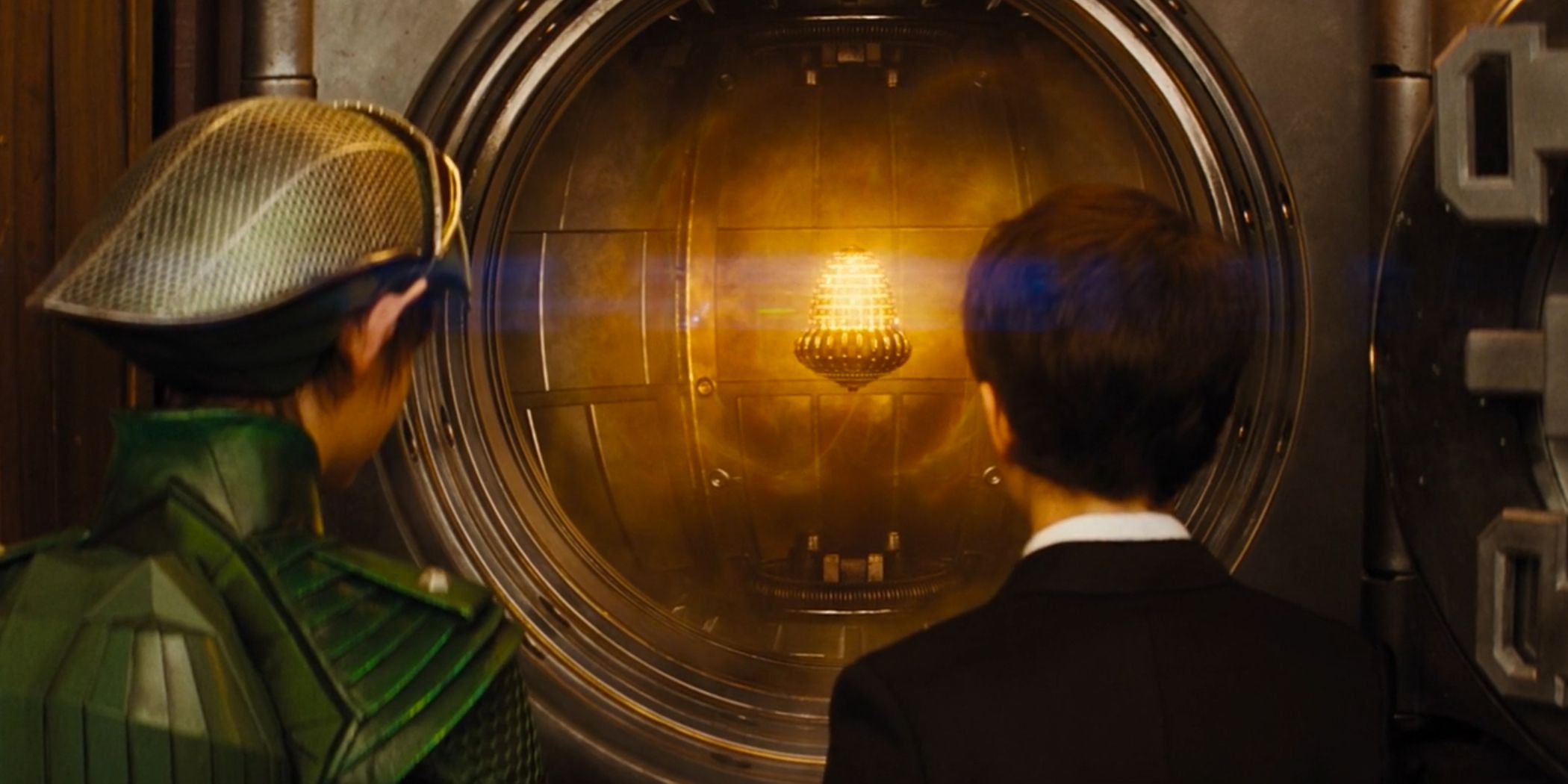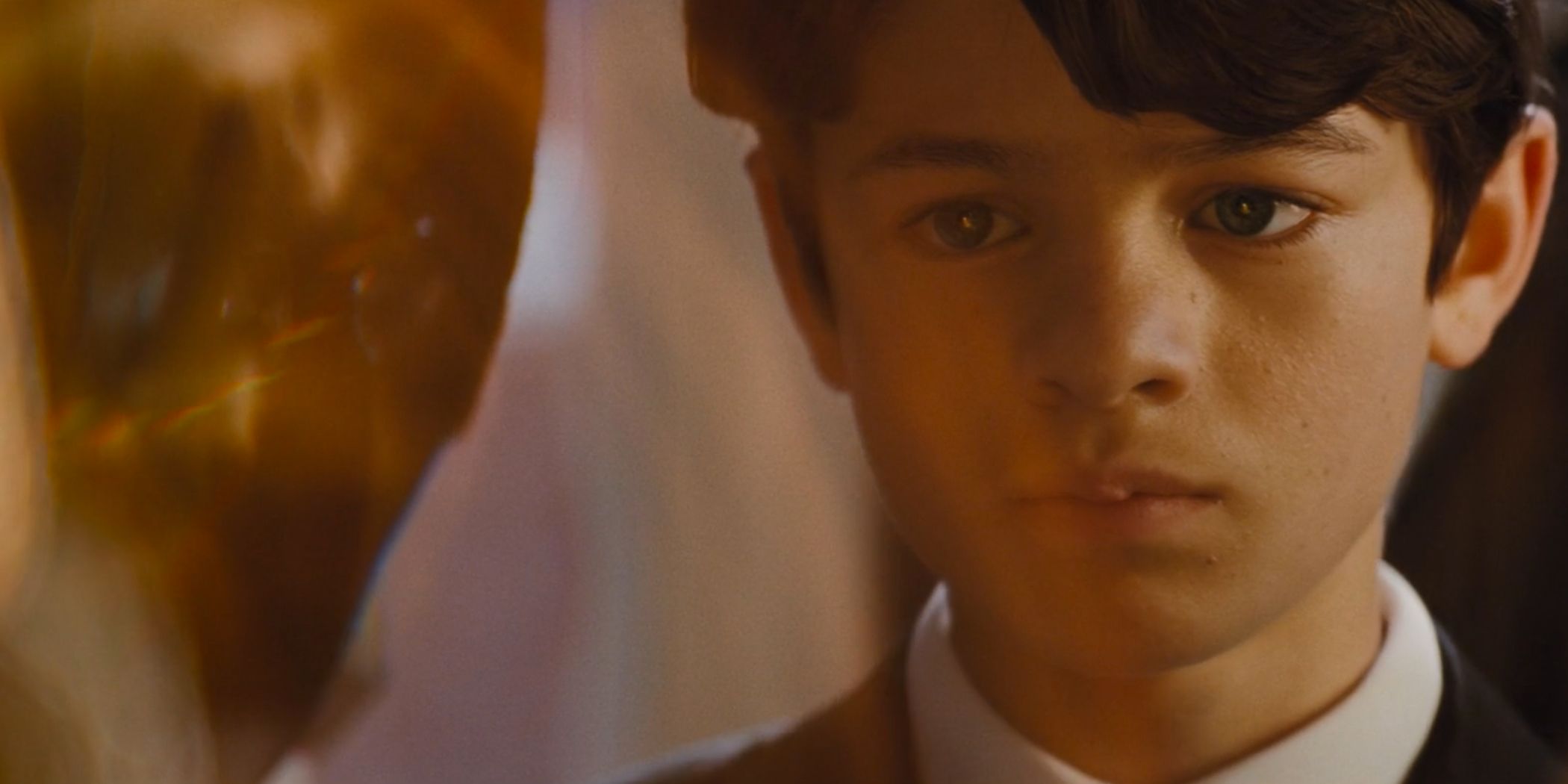WARNING: The following article contains spoilers for Artemis Fowl, now streaming on Disney+.
"The Aculos, a weapon so powerful and mysterious it can barely be imagined." Such is the artifact described by the dwarf Mulch Diggums (Josh Gad) at the beginning of Artemis Fowl, the movie adaptation of Eoin Colfer's fantasy novel series recently released on Disney+. But what is the Aculos? To be precise, it's a magic item capable of teleporting people or objects to and from any point on the globe. However, it's also a "MacGuffin" inserted into the movie in order to make Artemis (Ferdia Shaw) more sympathetic.
The term "MacGuffin" was first developed by English screenwriter Agnus MacPhail and then later popularized by Alfred Hitchcock. It refers to an item in a story which has little to no point in and of itself, but exists solely to be the object of desire for the characters. Examples of MacGuffins in other stories include the Holy Grail, the Philosopher's Stone and the Ark of the Covenant.
What makes the Aculos such a clear and conspicuous MacGuffin is that it's not present in the original source material for Artemis Fowl. In the novel of the same name, Artemis kidnaps Holly Short and ransoms her for faerie gold. This is what makes Artemis a criminal in the book: While he later uses half of the gold to help his mentally ill mother, he still ransoms a living being who he has kidnapped in exchange for material wealth.
However, this was likely too villainous a motivation for a Disney adaptation that wanted to keep its protagonist kid-friendly. So in the movie, Artemis kidnaps Holly to ransom her for the Aculos, an artifact he doesn't even know the purpose of, in order to trade it for his kidnapped father. And it ultimately turns out the Aculos was hidden inside Artemis' own house behind a lock he cannot bypass.
The film makes a big deal out of how Artemis manipulates Diggums into opening the lock, but it's hazy on how he even knows the Aculos is there. The choice to have the artifact already in his house seems to absolve Artemis of most of the moral weight of the crime, and the movie doubles down on this by having him give it back to Holly Short (Lara McDonnell) in the end. For a character who claims to be a criminal mastermind, this change to what Artemis bargains for makes him hardly seem like a criminal at all.
There's also the fact the movie claims the Aculos is a weapon. While there are certainly ways one could conceive to use it as such (teleporting someone into the sun or the depths of the ocean), this doesn't seem to be its primary use. It's used exactly twice in the movie. The first time is to rescue Artemis' father (Colin Farrell) from the clutches of Opal Koboi (Hong Chau), teleporting him back to Fowl Manor. The second time is to teleport Holly Short back to the city of the fae. Neither of these involve any sort of harm, and the first one even saves a life. While the Aculos certainly seems dangerous, and a powerful tool in the hands of a thief or assassin, it's hardly an awe-inspiring weapon.
The choice to alter the plot of Artemis Fowl by making it about a transparently boring MacGuffin instead of Artemis' own criminal machinations is uninspired. It aims to make the movie more appealing to kids and more palatable to concerned parents, but accomplishes neither. Instead, it robs Artemis of the criminal mystique that makes him interesting -- a character on par with the likes of Robin Hood or Loki. What is the Aculos? A cop-out, plain and simple.
Directed by Kenneth Branagh, Artemis Fowl stars Ferdia Shaw, Lara McDonnell, Josh Gad, Tamara Smart, Nonso Anozie, Josh McGuire, Nikesh Patel, Adrian Scarborough and Miranda Raison, with Colin Farrell and Judi Dench. The film is currently available on Disney+.



